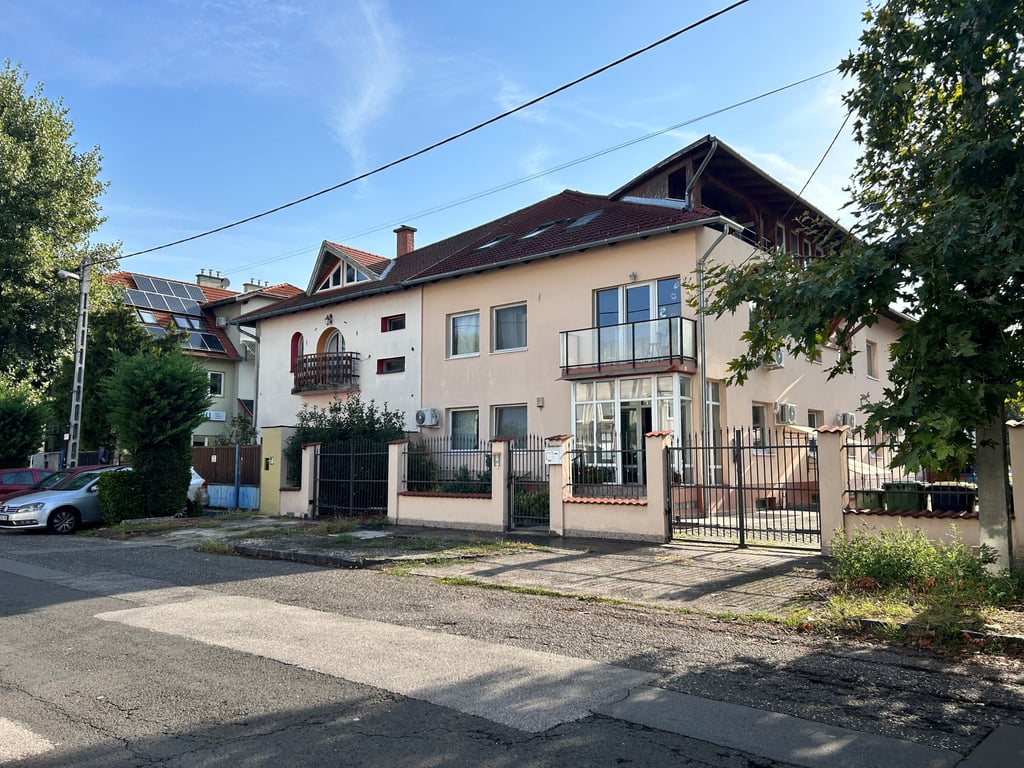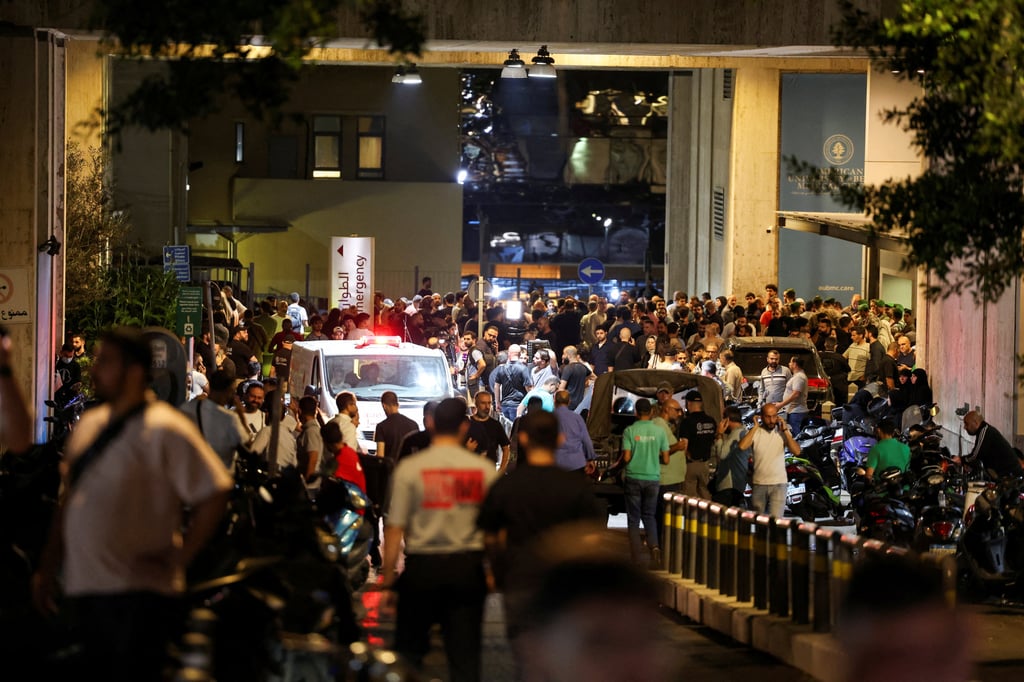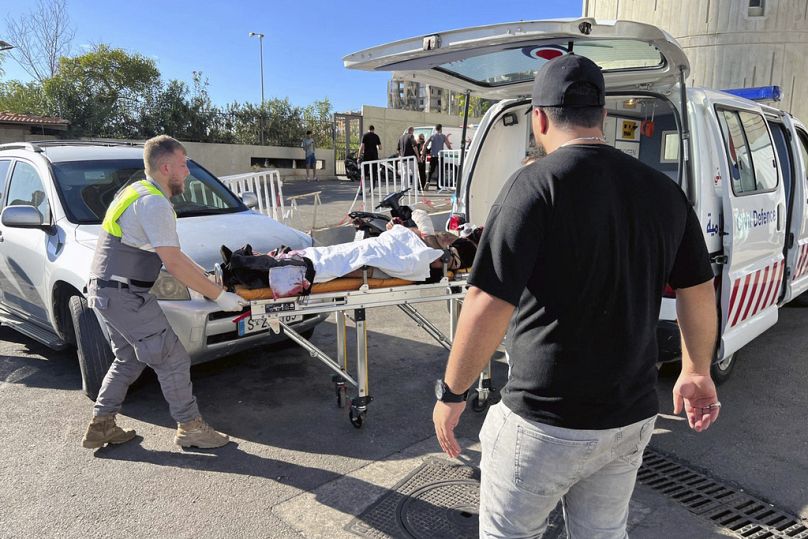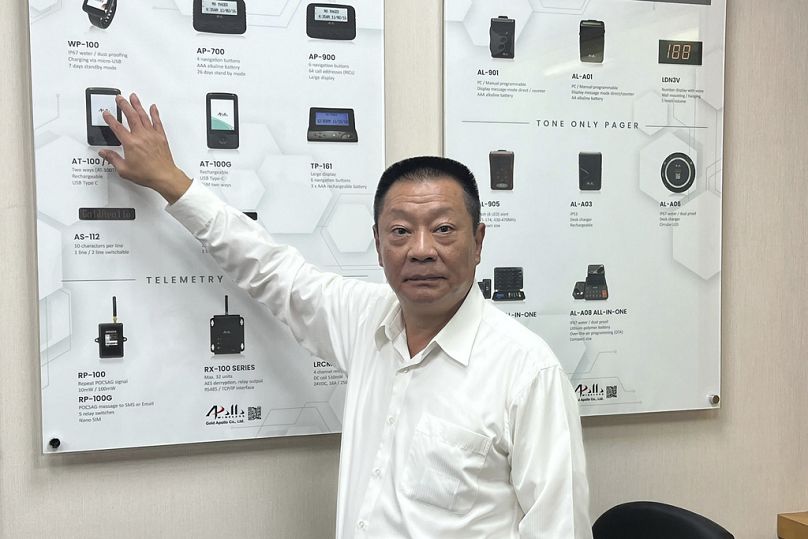Taiwan's Gold Apollo denies making Hezbollah pagers...
Israel's Mossad planted explosives in 5,000 pagers imported by Lebanon's Hezbollah: sourcesIsrael’s Mossad spy agency planted explosives inside 5,000 pagers imported by Lebanese group Hezbollah months before Tuesday’s detonations that killed nine people, a senior Lebanese security source and another source told Reuters.
The operation, with a trail running from Taiwan to Budapest, was an unprecedented Hezbollah security breach that saw thousands of pagers explode across Lebanon, wounding nearly 3,000 people, including many of the group’s fighters and Iran’s envoy to Beirut. Explosions were also reported in Damascus, Syria.
The Lebanese security source said the pagers were from Taiwan-based Gold Apollo, but the company said in a statement it did not manufacture the devices. It said they were made by a company called BAC – based in the Hungarian capital – which has a licence to use its brand.
Iran-backed Hezbollah has vowed to retaliate against Israel, whose military declined to comment on the blasts.
The pager blasts came at a time of mounting concern about tensions between Israel and Hezbollah, which have been engaged in cross-border warfare since the Gaza conflict erupted last October.
While the war in Gaza has been Israel’s main focus since the October 7 attack by Hamas-led gunmen, the precarious situation along Israel’s northern border with Lebanon has fuelled fears of a regional conflict that could drag in the United States and Iran.
Hezbollah said in a statement on Wednesday that “the resistance will continue today, like any other day, its operations to support Gaza, its people and its resistance which is a separate path from the harsh punishment that the criminal enemy (Israel) should await in response to Tuesday’s massacre”.
Hezbollah leader Hassan Nasrallah will make a previously unscheduled speech at 5pm on Thursday, the group said.
The plot appears to have been many months in the making, several sources told Reuters. It followed a series of assassinations of Hezbollah and Hamas commanders and leaders blamed on Israel since the start of the Gaza war.
The senior Lebanese security source said the group had ordered 5,000 pagers from Gold Apollo, which several sources say were brought into the country earlier this year.
Gold Apollo founder and president, Hsu Ching-kuang, told journalists earlier Wednesday that his company has had an authorisation agreement with BAC for the past three years.
“This company has cooperated with us and represents many of our products,” Hsu told reporters at the company’s offices in the northern Taiwanese city of New Taipei. “They also wanted to make pagers and asked me if they could use our company’s brand name.”
He added the products involved in the explosion were designed by BAC.
The stated address for BAC Consulting in Budapest was a peach building on a mostly residential street in an outer suburb. The company name was posted on the glass door on an A4 sheet.
A person at the building who asked not to be named said BAC Consulting was registered at the address but did not have a physical presence there. Several other companies were also registered at that address though none answered telephone calls and physical inquiries from Reuters.
The CEO of BAC Consulting, Cristiana Barsony-Arcidiacono says on her LinkedIn profile that she has worked as an adviser for various organisations including Unesco. She did not respond to emails from Reuters. The company website makes no reference to manufacturing.
The senior Lebanese security source identified a photograph of the model of the pager, an AP-924, which like other pagers wirelessly receive and display text messages but cannot make telephone calls.
Hezbollah fighters have been using pagers as a low-tech means of communication in an attempt to evade Israeli location-tracking, two sources familiar with the group’s operations told Reuters this year.
But the senior Lebanese source said the devices had been modified by Israel’s spy service “at the production level”.
“The Mossad injected a board inside of the device that has explosive material that receives a code. It’s very hard to detect it through any means. Even with any device or scanner,” the source said.
The source said 3,000 of the pagers exploded when a coded message was sent to them, simultaneously activating the explosives.
Another security source told Reuters that up to three grams of explosives were hidden in the new pagers and had gone “undetected” by Hezbollah for months.
Israel’s spy agency Mossad has a reputation for carrying off sophisticated operations, blamed for cyberattacks and suspected of being behind the assassination of a top Iranian scientist with a remote-controlled machine gun.
Israeli officials did not immediately respond to Reuters requests for comment.
Hezbollah was reeling from the attack, which left fighters and others bloodied, hospitalised or dead. One Hezbollah official said the detonation was the group’s “biggest security breach” since the Gaza conflict began.
“This would easily be the biggest counter-intelligence failure that Hezbollah has had in decades,” said Jonathan Panikoff, the US government’s former deputy national intelligence officer on the Middle East.
In February, Hezbollah drew up a war plan that aimed to address gaps in the group’s intelligence infrastructure. Around 170 fighters had already been killed in targeted Israeli strikes on Lebanon, including one senior commander and a top Hamas official in Beirut.
In a televised speech on February 13, the group’s Secretary General Hassan Nasrallah sternly warned supporters that their phones were more dangerous than Israeli spies, saying they should break, bury or lock them in an iron box.
Instead, the group opted to distribute pagers to Hezbollah members across the group’s various branches – from fighters to medics working in its relief services.
The explosions maimed many Hezbollah members, according to footage from hospitals reviewed by Reuters. Wounded men had injuries of varying degrees to the face, missing fingers and gaping wounds at the hip where the pagers were likely worn.
A missile barrage by Hezbollah the day after October 7 opened the latest phase of conflict and since then there have been daily exchanges of rockets, artillery fire and missiles, with Israeli jets striking deep into Lebanese territory.
Israeli Defence Minister Yoav Gallant told US Defence Secretary Lloyd Austin on Monday that the window was closing for a diplomatic solution to the stand-off with Hezbollah.
Concerns over a wider conflict in the Middle East have prompted international airlines to suspend flights to the region or to avoid air space.
Still, experts said they did not see the pager blasts as a sign that an Israeli ground offensive was imminent.
Instead, it was a sign of Israeli intelligence’s apparently deep penetration of Hezbollah.
“It demonstrates Israel’s ability to infiltrate its adversaries in a remarkably dramatic way,” said Paul Pillar, a 28-year veteran of the US intelligence community, mainly at the CIA.
Additional reporting by Associated Press and Agence France-Presse
Published on •Updated
At least 200 of some 2,750 injured were in critical condition after pagers exploded across the country, Lebanon’s Health Minister Firass Abiad said.
A Hungarian company manufactured the pagers that exploded in Lebanon and Syria, killing at least nine and wounding thousands more, according to the Taiwanese company whose brand the devices carried.
Gold Apollo said on Wednesday that it authorised its brand on the AR-924 pagers but that Budapest-based firm BAC Consulting KFT was their original maker.
"According to the cooperation agreement, we authorize BAC to use our brand trademark for product sales in designated regions, but the design and manufacturing of the products are solely the responsibility of BAC," the Taiwanese company said in a statement.
Gold Apollo chair Hsu Ching-Kuang told journalists on Wednesday that his company has had a licensing agreement with BAC for the past three years, but did not provide evidence of the contract.
Euronews has approached BAC for comment.
Pagers used by the militant group Hezbollah exploded near-simultaneously on Tuesday in Lebanon and Syria, killing at least nine people, including an eight-year-old girl, and wounding more than 2,000.
At least 200 of some 2,750 injured were in critical condition, according to Lebanon’s Health Minister Firass Abiad. Others mostly suffered injuries to their face and hands, and some required amputations.
Photos and videos circulating on social media showed people lying on the pavement with injuries to their face, abdomen or extremities.
Hezbollah and the Lebanese government blamed Israel for what appeared to be a sophisticated remote attack. Israeli has declined to comment on the allegations. The US has denied any involvement in the attack.
At about 3:30 pm on Tuesday, as people shopped for groceries, sat in cafés or drove cars and motorcycles, the pagers in their hands or pockets started heating up and then exploding — leaving blood-splattered scenes and panicking bystanders.
The state-run National News Agency said hospitals in southern Lebanon, the eastern Bekaa Valley and Beirut's southern suburbs — areas where Hezbollah has a strong presence — had called on people to donate blood of all types.
It appeared that many of those hit were members of Hezbollah, but it was not immediately clear if non-Hezbollah members also carried any of the exploding pagers.
The blasts were mainly in areas where the group has a strong presence, particularly a southern Beirut suburb and in the Beqaa region of eastern Lebanon, as well as in Damascus, Syria according to Lebanese security officials and a Hezbollah official. The Hezbollah official spoke on condition of anonymity because he was not authorised to talk to the media.
Experts believe explosive material was put into the pagers prior to their delivery and use in a sophisticated supply chain infiltration.
The AR-924 pager, advertised as being "rugged", contains a rechargeable lithium battery, according to specifications once advertised on Gold Apollo's website before it was apparently taken down on Tuesday after the sabotage attack. It could receive texts of up to 100 characters.
It also claimed to have up to 85 days of battery life. That would be crucial in Lebanon, where electricity outages have been common after years of economic collapse. Pagers also run on a different wireless network than mobile phones, making them more resilient in emergencies — one of the reasons why many hospitals worldwide still rely on them.
Taiwan's Ministry of Economic Affairs said from the beginning of 2022 until August 2024, Gold Apollo has exported 260,000 sets of pagers, including more than 40,000 sets between January and August of this year. The ministry said the pagers were exported mainly to European and American countries and that it had no records of direct exports of Gold Apollo pagers to Lebanon.
For Hezbollah, the militants also looked at the pagers as a means to sidestep what's believed to be intensive Israeli electronic surveillance on mobile phone networks in Lebanon.
"The phone that we have in our hands — I do not have a phone in my hand — is a listening device," warned Hezbollah chief Hassan Nasrallah in a February speech.
He later added: "I tell you that the phone in your hands, in your wife's hands, and in your children's hands is the agent. It is a deadly agent, not a simple one. It is a deadly agent that provides specific and accurate information. Therefore, this requires great seriousness when confronting it."
Tuesday's incident comes at a time of heightened tensions between Lebanon and Israel. Hezbollah and Israeli forces have been clashing near-daily for more than 11 months against the backdrop of the war between Israel and Hamas in Gaza.
The clashes have killed hundreds in Lebanon and dozens in Israel and displaced tens of thousands on both sides of the border.
On Tuesday, Israel declared that it has made an objective of halting Hezbollah's attacks in the north to allow Israeli residents in the area to return to their homes.
Hezbollah began striking Israel almost immediately after Hamas's terrorist attack on 7 October, which sparked the Israel-Hamas war. Since then, Israel and Hezbollah have exchanged fire daily, coming close to a full-blown war on several occasions and forcing tens of thousands on both sides of the border to evacuate their homes.
Gaza's Health Ministry says more than 41,000 Palestinians have been killed in the territory since Hamas' 7 October attack. The ministry does not differentiate between fighters and civilians in its count but says a little over half of those killed were women and children. Israel says it has killed over 17,000 militants, without providing evidence.
The war has caused vast destruction and displaced about 90% of Gaza's population of 2.3 million.









No comments:
Post a Comment